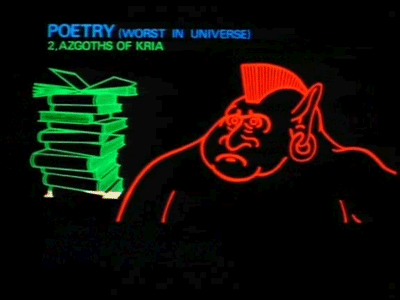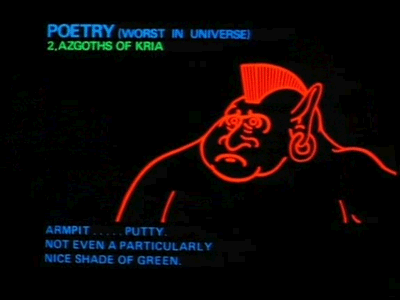Poetry time. Why not.
“Ulysses” by Tennyson is one of those poems that has become part of common parlance, or at least a few bits of it have. It is written as a monolog by King Ulysses of Ithaca, of “Iliad” and “Odyssey” fame. Set long after the events of those books, Ulysses is old and bored out of his mind by the day-to-day life of a king. He yearns to get Back Out There and adventure again. When Tennyson published this back in 1842, this was considered fully understandable and praiseworthy, but these days it is seen as a character flaw… he should be more devoted to his duties at home. While I can see both sides to that, I can see that this poem reflects basic human nature. We all know old soldiers who, decades after last being on the battlefield, still recall their time in hell with an odd wistfulness; horrible though it may have been, there is a nostalgia for it. Excitement and adventure, not to mention the doings of great deeds, hold considerable sway over the minds of men.
The space program has taught us this lesson again. How many early astronauts, up through the Apollo program, went to the literal heights that man could achieve, and then fell to Earth and landed in a depression or a bottle?
“Ulysses” ends with some of the greatest, most inspiring lines in the English language. We may not be the heroes of old, but damnit, we will do our best.
I’ve highlighted some of what I think are the best lines…
—————————–
It little profits that an idle king,
By this still hearth, among these barren crags,
Match’d with an aged wife, I mete and dole
Unequal laws unto a savage race,
That hoard, and sleep, and feed, and know not me.
I cannot rest from travel: I will drink
Life to the lees: All times I have enjoy’d
Greatly, have suffer’d greatly, both with those
That loved me, and alone, on shore, and when
Thro’ scudding drifts the rainy Hyades
Vext the dim sea: I am become a name;
For always roaming with a hungry heart
Much have I seen and known; cities of men
And manners, climates, councils, governments,
Myself not least, but honour’d of them all;
And drunk delight of battle with my peers,
Far on the ringing plains of windy Troy.
I am a part of all that I have met;
Yet all experience is an arch wherethro’
Gleams that untravell’d world whose margin fades
For ever and forever when I move.
How dull it is to pause, to make an end,
To rust unburnish’d, not to shine in use!
As tho’ to breathe were life! Life piled on life
Were all too little, and of one to me
Little remains: but every hour is saved
From that eternal silence, something more,
A bringer of new things; and vile it were
For some three suns to store and hoard myself,
And this gray spirit yearning in desire
To follow knowledge like a sinking star,
Beyond the utmost bound of human thought.
This is my son, mine own Telemachus,
To whom I leave the sceptre and the isle,–
Well-loved of me, discerning to fulfil
This labour, by slow prudence to make mild
A rugged people, and thro’ soft degrees
Subdue them to the useful and the good.
Most blameless is he, centred in the sphere
Of common duties, decent not to fail
In offices of tenderness, and pay
Meet adoration to my household gods,
When I am gone. He works his work, I mine.
There lies the port; the vessel puffs her sail:
There gloom the dark, broad seas. My mariners,
Souls that have toil’d, and wrought, and thought with me–
That ever with a frolic welcome took
The thunder and the sunshine, and opposed
Free hearts, free foreheads–you and I are old;
Old age hath yet his honour and his toil;
Death closes all: but something ere the end,
Some work of noble note, may yet be done,
Not unbecoming men that strove with Gods.
The lights begin to twinkle from the rocks:
The long day wanes: the slow moon climbs: the deep
Moans round with many voices. Come, my friends,
‘T is not too late to seek a newer world.
Push off, and sitting well in order smite
The sounding furrows; for my purpose holds
To sail beyond the sunset, and the baths
Of all the western stars, until I die.
It may be that the gulfs will wash us down:
It may be we shall touch the Happy Isles,
And see the great Achilles, whom we knew.
Tho’ much is taken, much abides; and tho’
We are not now that strength which in old days
Moved earth and heaven, that which we are, we are;
One equal temper of heroic hearts,
Made weak by time and fate, but strong in will
To strive, to seek, to find, and not to yield.


